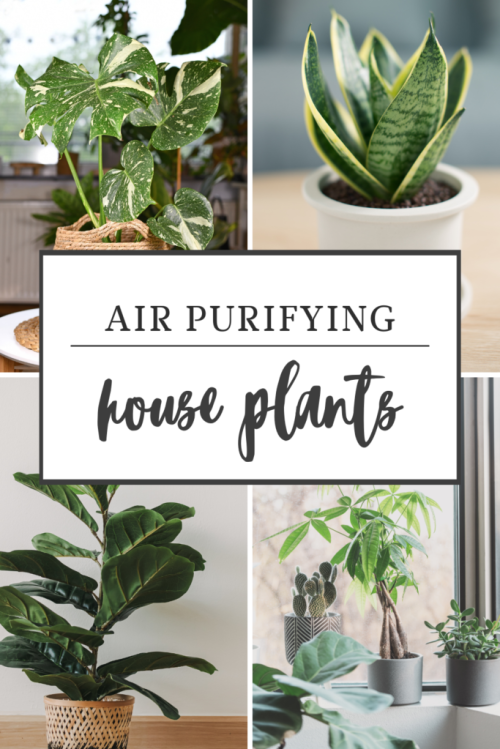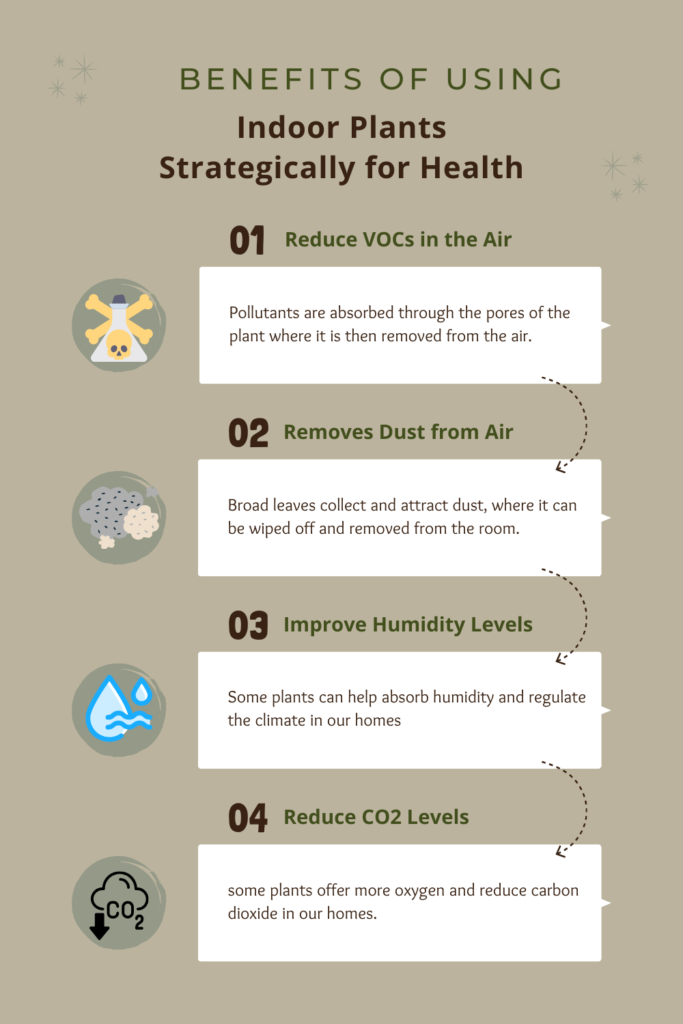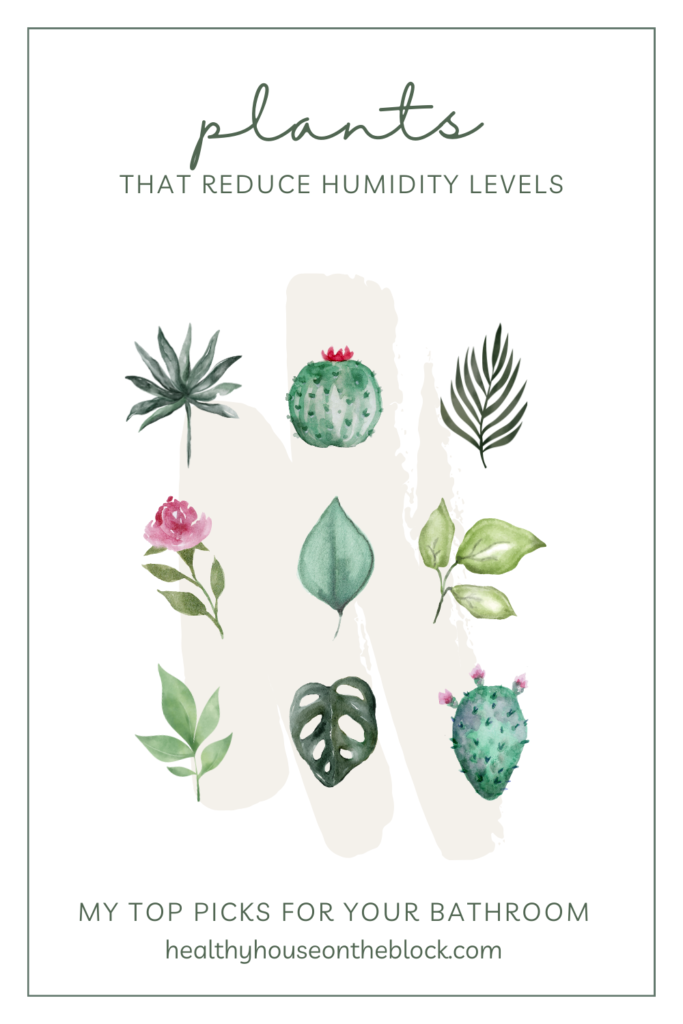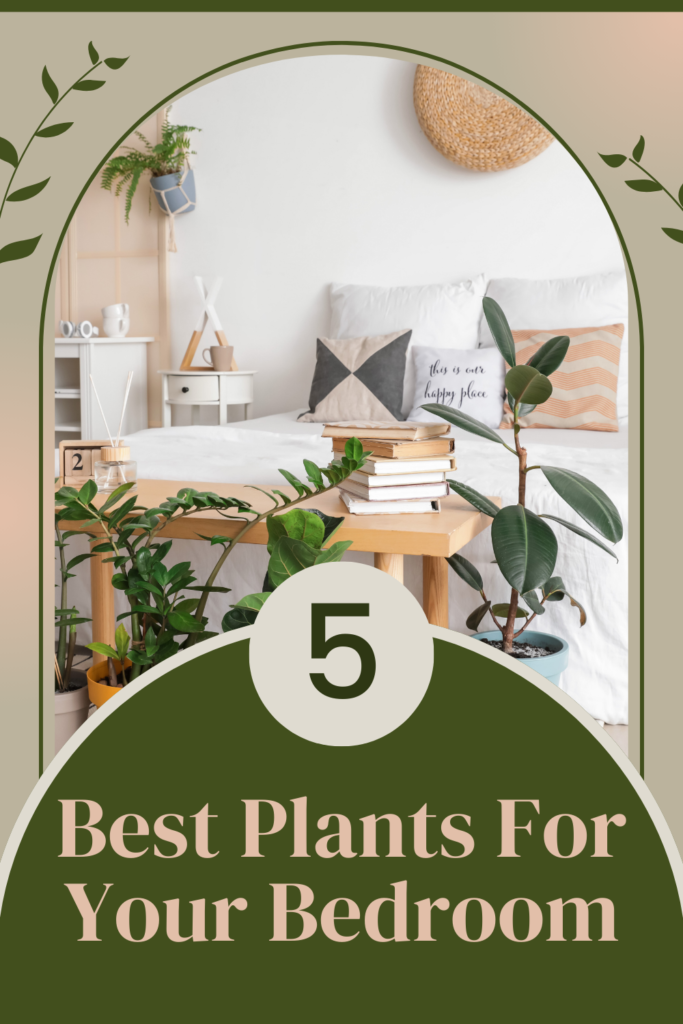
When you picture a “healthy house”, do you envision house plants in every room and greenery throughout the home? While it certainly isn’t the only way to create a healthier home environment, there definitely is a huge benefit to strategically placing house plants in your space.
But in the same breath, one big mistake I see all the time in homes that look healthy is that they use plants in the wrong way and keep them in the wrong places. Plants are great in theory, but incorrect placement and watering will actually make your home pretty unhealthy.
Because plants offer a variety of benefits to our homes and really clean up our indoor air, they’re a great addition to any healthy home. And if you’ll pay attention to the specific needs of each room in your home and place specific plants in each spot, you’ll benefit your home and indoor air quality even more.
For example, our bathrooms tend to be areas with higher humidity, while our living areas tend to have a drier climate. Our kitchen tends to hold on to odors and our bedroom often has excess dust that collects. My researched list of plants will help you improve these issues in each space of your home by using the best air purifying house plant for each room.
BENEFITS OF INDOOR PLANTS
Bringing air purifying house plants indoors can be helpful in so many ways to both the indoor environment and our health.
First, plants purify the air by reducing toxins like VOCs and formaldehyde (Study). The pollutants are absorbed through the pores of the plant where it is then removed from the air.
Second, some plants offer more oxygen and reduce carbon dioxide in our homes. This is particularly important for bedrooms at night time when doors are closed and we are exhaling at night. (Study)
We also know that plants are great for eating. Herbs and edible plants are an amazing resource to add to your food in contrast to store-bought flavoring additives. It’s a great option to reduce inflammation through diet and reduce consumption of preservatives.
Some of the less known benefits of plants are that they can remove dust from the air (Study). This can be incredibly helpful in offices and bedrooms where dust tends to accumulate, causing problems with allergies, dust mite production and asthma.
Another benefit is that plants can reduce humidity in some instances. This article about creating the perfect humidity level can help you understand how important humidity levels are in our homes. Some plants can help absorb humidity and regulate the climate in our homes (Study).

AIR PURIFYING HOUSE PLANTS FOR THE KITCHEN
These plants will help purify the air, reduce odors as well as be good for cooking with or using in case of burns.
Aloe Vera: Good for burns (Costa Farms Aloe Vera)
English Ivy: air purifier – removes mold and bacteria from the air as well. Toxic to dogs and cats. (American Plant Exchange English Ivy)
Spider Plant: Helps remove odor, fumes and pollutants from the air – natural air purifier (Costa Farms Spider Plant)
Herbs: Perfect for adding to meals and adding fresh scent to the kitchen air (Rosemary and mint are a favorite) (Organic Herb Planter Set)
Golden Pothos: Easy to grow and effective for removing airborne pollutants (Costa Farms Golden Pothos)

PLANTS FOR BATHROOMS
This list of air purifying house plants includes mostly plants that will help regulate the indoor humidity as bathrooms are often a humid place. These houseplants will help reduce moisture and create a healthier environment in your bathroom.
Peace Lily: Reduce humidity and absorbs excess moisture (Cost Farms Peace Lily Plant)
Boston Fern: Helps balance moisture levels in the air (American Plant Exchange Boston Fern)
Palms: Helps filter air and remove pollutants such as formaldehyde. Absorbs moisture through their leaves to help regulate humidity. (Costa Farms Butterfly Palm)
Chinese Evergreen: Can withstand high humidity levels and dry air (American Plant Exchange Chinese Evergreen)

PLANTS FOR BEDROOMS
Air purifying house plants in your bedroom must be plants that convert carbon dioxide to oxygen to promote better sleep and a healthier indoor environment. Some of these plants are also plants that help promote healthy sleep with their light scents.
Lavender: The lavender scent will help create a positive sleep environment (Plants by Post Lavender Plant)
Jasmine: another light scent that helps lower anxiety levels and can help with sleep (Perfect Plants Jasmine Plant)
Snake Plant: Can help reduce toxins in the air and helps convert carbon dioxide to oxygen at night. Also helps reduce dust from the air (Costa Farms Snake Plant)
Valerian: Helps with insomnia and can impact positive uninterrupted sleep. (Valerian Plant Seeds)
Sage: Helps with sleep and relaxation (Bonnie Plants Sage)

AIR PURIFYING HOUSE PLANTS FOR LIVING AREAS
Living areas should have plants that remove VOCs (especially formaldehyde which is in our furniture) and plants that purify the air.
Rubber Plant (Ficus): Helps remove formaldehyde and purify the air (United Nursery Ficus Tree)
Fiddle Leaf Fig Plant: The broad leaves of this plant make it really efficient at purifying the air, it can also help control humidity. (Costa Farms Fiddle Leaf Fig Tree)
Purple Waffle Plant: Efficient in removing VOCs like benzene, toluene and other pollutants (Hirt’s Gardens Waffle Plant)
Dragon Tree: Natural air purifier (but toxic to cats and dogs) (Hirt’s Dragon Tree Plant)
HOW TO PREVENT TOXINS WITH INDOOR PLANTS:

Adding too much water to your plants or having too many plants in one space can add excess humidity to the air. We don’t want our homes to be too humid as that promotes off-gassing of VOCs at a higher level as well as increasing production of dustmites.
You’ll also want to be careful with watering so as not to create an environment where mold and mildew are present. This can easily become airborne and cause problems in the indoor air.
Be sure to check out this post that has some ideas for homemade planters to keep your plants as part of your home decor.
ADDITIONAL RESOURCES FOR HOUSE PLANTS:
Be sure to check out this post that has some ideas for homemade planters to keep your plants as part of your home decor.
This post is also super helpful if you want to make your own organic fertilizer and plant food for your house plants.
And if you’re all about biophilic design and adding it to your home spaces, this post is FILLED with ideas you can use.
Adding house plants to any space can not only improve the health of your indoor air, but it can also create a more welcoming environment in your home. And even though I’m no green thumb, I’m a huge advocate for adding greenery to our indoor spaces whenever possible.





Pingback: How Hygge is Healthy for Your Home » Healthy House on the Block
Pingback: Mildew Vs. Mold: How to Keep Your Bathroom Dry -
Pingback: Toxin Free Lifestyle: Super Simple Living Room Ideas -